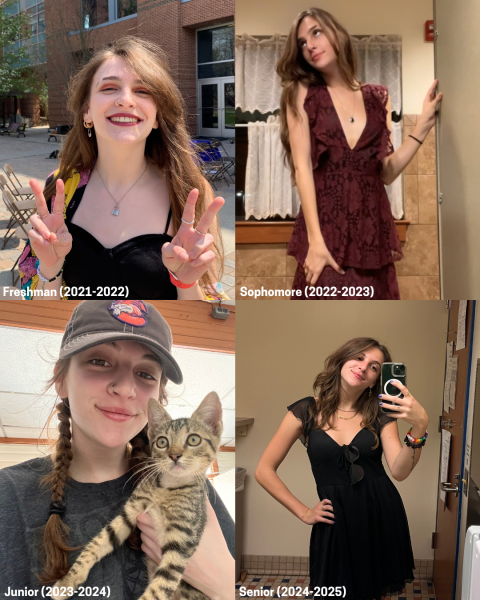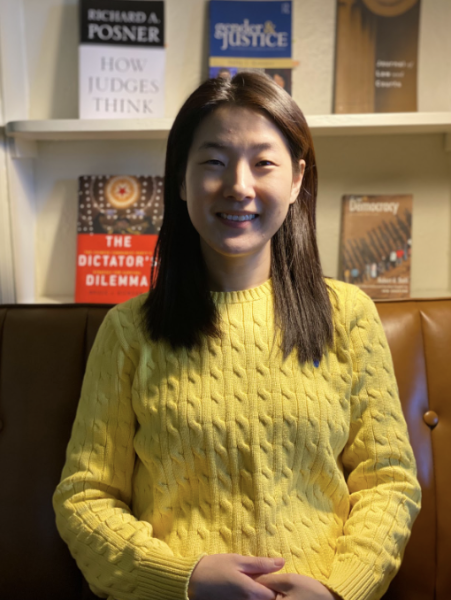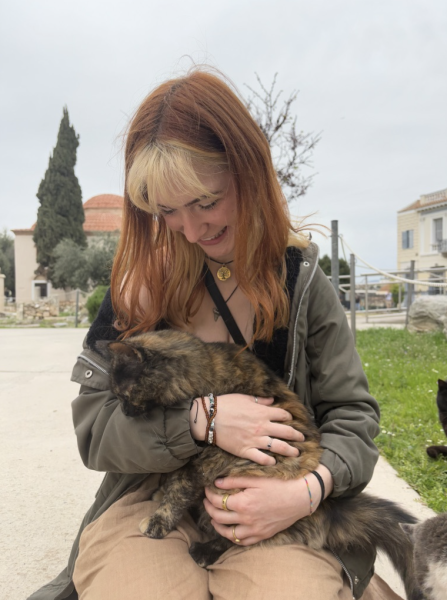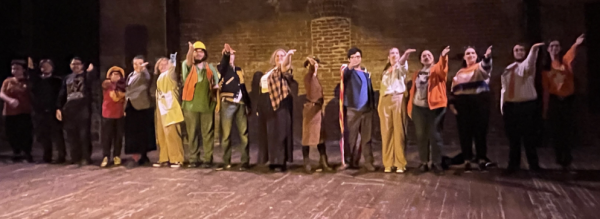DEI’s March Address: Celebrating Women Who Tell Our Stories
This month’s address delivered by The Office for Diversity, Equity, and Inclusion (DEI), was a “takeover” of five women who spoke of their stories and the stories of Moravian women in their lives. These speakers were Anize Appel, Michelle Rios-Araque, Bryn Wiragh, Jess Velazqez, and Belinda Waller-Peterson.
The address, which was held on Thursday, March 9, was centered around the theme of “celebrating women who tell our stories.”
The first speaker, Dr. Anize Appel, Executive Director of the Center for Global Education and Associate Dean for Study Abroad, described the women in her life who “would tell my story.” Much of her speech focused on her thoughts as a child. She said she did not want to be “an empty can” but rather “a-merry-can.”
She described the women in her childhood stories as women who would tell her story.
Appel recalled going to the store as a child and hearing her mother negotiate the prices of products and said she would not discuss that or her cultural language and food at school to deter any judgments. During her childhood, she did not want to be ridiculed for being different from the other children at her school.
Appel described herself as an “American making something out of nothing” and said she is “no longer assimilating but acculturating.” Appel also iterated that she “carries the hopes and dreams of all the women who would tell my story.”
She concluded her speech by saying, “I am now proudly sharing my first generation story” and asking the questions, “What legacy will you leave for other women?” and “Whose story will you tell?”
The second speaker, Michelle Rios-Araque, Assistant Director for Equity and Inclusion, spoke on her mother’s experiences as an immigrant.
Her mother immigrated to the United States when she and her sister were fourteen and two years old. Rios-Araque shared quotes from her mother, who said, “I try my best to do everything right in life…I never give up.” She also shared that her mother had to “be quiet about [her] immigration status.”
Her mother wished she had learned English more proficiently and says that she does not speak the language well, although Rios-Araque refutes that, saying that her mother speaks very well and has worked very hard to be a good speaker.
Rios-Araque shared that her mother gained her citizenship in 2014, which was one of her proudest moments, along with seeing her daughter go to college.
Rios-Araque ended her speech by sharing that she would not be where she is today without her mother.
The address’s third speaker was Bryn Wiragh, Program Coordinator of the Center for Global Education. Wiragh spoke of her experiences with yoga and the history of how yoga became female-dominated.
She shared that yoga was male dominated in India until the 20th century. She spoke of notable female yoga teachers Swami Sivananda Radha, Indra Devi, and Lilias Folan.
Swami Sivananda Radha started the first yoga ashram in North America. Indra Devi was the first female and westerner to study with yoga master Krishnamachary and penned China’s first yoga school. Lilias Folan had a yoga television series that aired from 1972-2002.
Wiragh concluded by sharing the mental, physical, and psychological benefits yoga can have.
Jesher Velazquez, Office Manager of the Center for Global Education, was the fourth speaker of the address. Her speech focused on her experiences as an interpreter.
Velazquez recalled memories from her childhood of interpreting for her family at doctors’ offices, while filling out paperwork, and other instances. She shared that she enjoyed helping her family as a child and she became the interpreter in her family.
She remembers her mother offering her interpretive services to others in her neighborhood. While she did not mind helping, she was curious as to why her mother offered her aid. When she asked her mother why, her mother responded, “because they cannot speak for themselves.”
“I felt something stir up inside me… I wanted to pursue it,” recalled Velazquez. She is now a volunteer for the Lehigh Valley Health Network (LVHN) and her church as an interpreter. She also shared some of the women whom she works with as an interpreter.
“I want to encourage everyone that you don’t need to speak a second language to speak for someone… be the voice for women who don’t have a voice of their own,” said Velazquez.
The fifth and final speaker of the address was Dr. Belinda Waller-Peterson, Associate Dean for Equity and Inclusion and Associate Professor of English.
Waller-Peterson shared the value she holds on stories and storytelling, and her fascination with literature surrounding women, women’s health, and the womb. She recalled feeling drawn to these stories because of the health crises that women face, especially Black women. Waller-Peterson’s mother struggled with an illness, and when interviewed, her mother said she was “glad somebody was interested in my health and what happened to my life.”
Waller Peterson concluded by saying, “Let us hold on to the stories of the women in our life who cannot speak their stories.”
All of these women have exceptionally different lives and stories to tell, yet were able to come together to share not only their stories but the stories of other women in their lives. The goal of this address was not to stick to one theme or narrative, but rather allowed everyone’s ideas and thoughts to be expressed. Each woman shared valuable knowledge based on what is present in their lives now and the past experiences that shape who they are.







